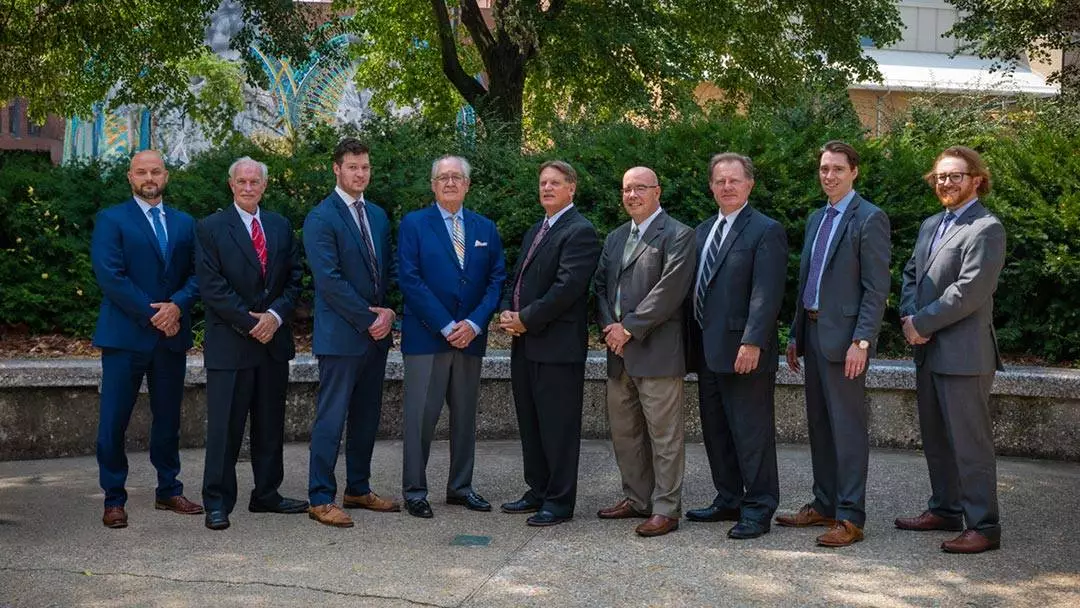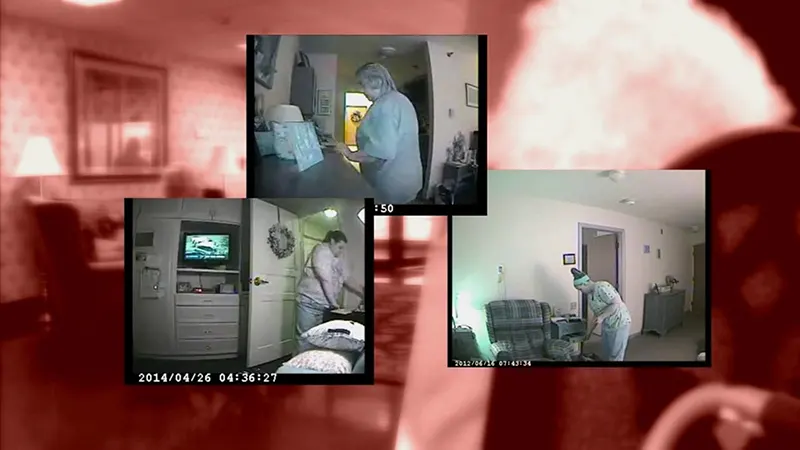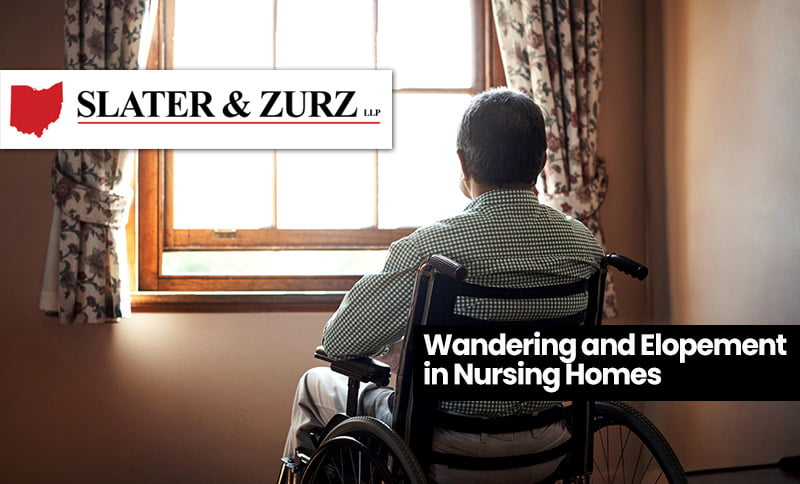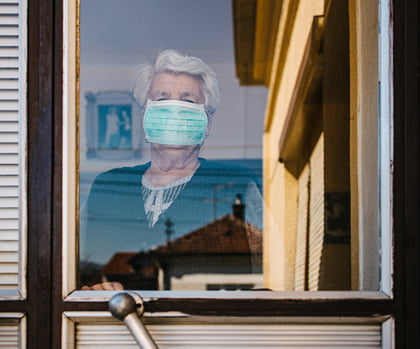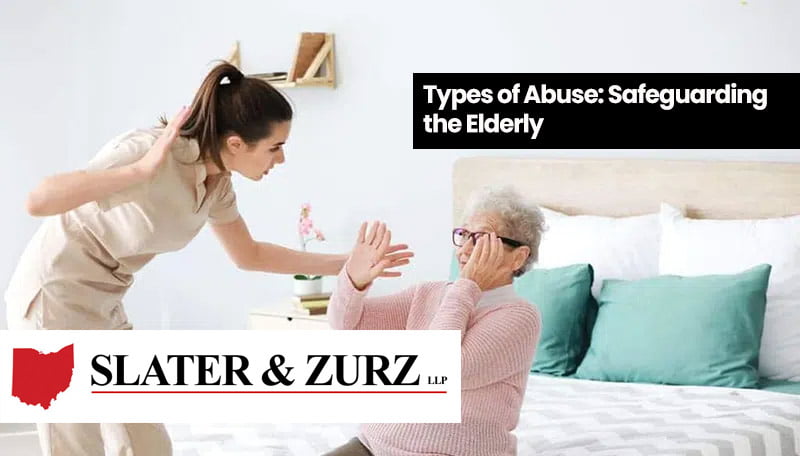Especially since nursing homes began closing their doors to residents’ families to stem the spread of the “novel coronavirus” known as COVID-19, there has been a growing concern among those families surrounding the care their loved ones have received. Zoom, Skype, window visits and other means of communicating with loved ones inside have helped—but what happens when no one on the outside is watching? Even when COVID risks have subsided as a result of widespread vaccination, there will be times when no family member is present to monitor a loved one’s care.
A nursing home’s neglect in failing to prevent or treat bedsores, failure to provide appropriate meals or medications, failure to check on a resident, as well as failure to prevent active abuse by an employee amounts to nursing home abuse. At Slater & Zurz, we have a solid track record of success in handling nursing home abuse and neglect cases. If your loved one was harmed in a nursing home, call #4LAW or email our team to set up a free consultation with one of our elderly abuse attorneys. We’ll review your case, answer your questions, and recommend a path forward to get you and your loved one the compensation you deserve.
Many have turned to video cameras to check on their loved ones.
Some nursing home residents are lucid and able to communicate effectively with providers and family members. However, some residents—those with dementia and those who are not sufficiently articulate—cannot let their families know if there are any problems. Many families have installed video cameras in their loved one’s nursing home rooms to monitor the care provided—or not provided.
A Few Case Histories . . .
- A Cleveland area man was made to feel as though he was the “bad guy” when he questioned the nursing home concerning apparent injuries, such as a red mark on his 78-year-old mother’s face, that the nursing home couldn’t explain. His mother, an Alzheimer’s patient, was being mistreated by staff members. He installed a hidden camera inside a small fan in her room and posted a sign warning of the camera’s presence. Within only a few days, he saw videos of staff members striking his mother and handling her roughly. Two workers were fired when the
camera photos became public. One worker was charged with felonious assault, and a third aide was disciplined. - Two nursing home workers in the Philadelphia area were caught on a hidden camera allegedly taunting an elderly patient.
- A family in Oklahoma who installed a camera in a nursing home room because they suspected workers were stealing from their 96-year-old mother discovered instead that she was being abused
- While serving as Ohio’s Attorney General, Mike DeWine shut down a nursing home in Zanesville based on a video from “granny cams” installed in response to numerous complaints of abuse and neglect there. No warrant was required because every resident whose treatment was recorded had consented to the surveillance (either personally or through a guardian).
All of these cases occurred before the COVID pandemic, before families were barred from visiting with their loved ones in person inside the home. However, although COVID might have been expected to prompt regulations pertaining to electronic surveillance, there is no universal law governing what families can and can’t do in their efforts to ensure the health and safety of their loved ones.
The Laws that Are on the Books
Neither Ohio nor federal law specifically regulates video surveillance in nursing homes. In 1987, the federal Nursing Home Reform Act was introduced to ensure that residents received quality care. The Act established required services, including periodic assessments and a comprehensive care plan for each resident, designed to meet residents’ needs.
The Act also established a “Residents’ Bill of Rights,” including a right to privacy and a right to be treated with dignity. Ohio has adopted a residents’ bill of rights, Ohio Revised Code §3721.13, which includes these rights. These rights cannot be waived or surrendered under any circumstances.
A number of states have laws that address nursing home surveillance cameras in some respects, including Illinois, Kansas, Louisiana, Maryland, New Mexico, Oklahoma, Texas, Utah, Virginia, and
Washington. New Jersey provides for the loan of “granny cams” to consumers. In 2021, the Georgia House of Representatives passed a bill allowing families to place hidden cameras in nursing homes. The legislation was prompted by a state supreme court decision allowing use of a hidden camera video, in which aides ignored an 89-year-old veteran begging for help and repeatedly saying that he couldn’t breathe, in a murder trial.
State laws covering video surveillance in nursing homes include varying requirements designed to protect residents’ rights:
- The requirement is that the resident or the resident’s representative consent to the filming;
- Prohibition on networking audio or video data;
- Posted notice throughout the facility; and
All states require consent if conversations are to be recorded. In Ohio, unlike some other states, only one party to the conversation must consent. This requirement can be satisfied if the resident or the resident’s representative consents, whether or not the caregiver is aware of the recording.
Benefits of “Granny Cams” in Nursing Homes
The most obvious benefit of “granny cams” in nursing homes is the ability to monitor the care provided to a loved one.
- Any abuse or neglect can be filmed and can then be stopped
- The video can serve as evidence to justify sanctions, termination, the filing of criminal charges, or the filing of civil action for monetary compensation.
- If the staff are aware of the camera, that awareness may reduce the likelihood of abuse or neglect.
- A video can protect innocent staff members if an injury or other problem resulted from something other than staff negligence or other misconduct.
- A video can highlight exceptional care and compassion by some staff members, potentially incentivizing exceptional care.
Drawbacks of “Granny Cams” in Nursing Homes
- Some caregivers may resent the atmosphere of mistrust created by the presence of cameras.
- Cameras may inhibit the genuine friendship that might otherwise develop between caregivers and your loved one.
- Caregivers may refrain from simple gestures like hugging and holding hands—gestures that can mean so much to a resident unable to visit with family members—out of concern that those gestures might be misinterpreted if filmed.
- Proper incontinence care and bathing in the resident’s room may be impeded by both the legal requirement enforcing a resident’s right to privacy and dignity and the resident’s resistance based on his or her awareness of the filming.
If your loved one has been abused or neglected, rely on a full-service law firm dedicated to vindicating the rights of nursing home residents.
Nothing can completely restore the peace of mind of a nursing home resident who is abused or neglected by the very people whose duty it is to provide compassionate and competent care. This injury is compounded when the resident is unable to visit with trusted family members on whom the resident depends on helping resolve problems at the nursing home or when the resident’s condition makes it impossible to communicate effectively using the types of devices that are expected to take the place of direct human contact.
At Slater & Zurz, we take the rights and concerns of nursing home residents and their families seriously. We understand a family’s need for reassurance that a loved one receives proper care. If your loved one has suffered abuse or neglect while under the care of a nursing home, call or email our team to schedule a free consultation to discuss your loved one’s case. One of our nursing home abuse lawyers will evaluate your claim and suggest the best path forward. We’re here to serve your legal needs with compassion, determination, and the proven ability to win.
We advocate strongly on behalf of injured victims across Ohio, with convenient locations in Akron, Canton, Cincinnati, Cleveland, Columbus, and Toledo.


